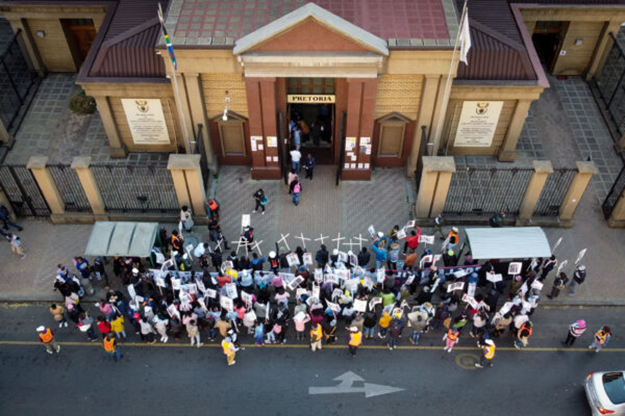
IMMEDIATE RELEASE
DATE: 31 July 2023
The Pretoria High Court is set to hear the challenge to a proposed gas to power facility in the Richards Bay IDZ, Richards Bay Gas to Power 2 (RB2) on Monday and Tuesday next week (31 July and 01 August).
groundWork (gW) and South Durban Community Environmental Alliance (SDCEA), represented by Centre for Environmental Rights (CER), have asked the court to set aside an amended environmental authorisation for the Richards Bay Gas to Power 2 (RB2) power plant in light of substantive and procedural inadequacies, including a failure to undertake the legally required climate change impact assessment.
This is a 400-MW gas to power plant which received an environmental authorisation in 2016 for a closed cycle gas turbine with a condition that the activity commence within five years of authorisation. Dormant for years, the project resurfaced in December 2020 with an application to amend the timeline, the technology, and the fuel use of the plant – through an environmental authorisation amendment process.
In light of the serious climate change implication of using fossil gas to generate electricity, and the absence of any assessment of potential impacts, the Applicants are calling on government to follow the Environmental Impact Assessment Regulations of 2014, to take into account the greenhouse gas emissions released during the life cycle of gas as a fossil fuel, as well as assess the potentially destructive climate change impacts of the RB2 project.
Yegeshni Moodley, groundWork’s Climate and Energy Justice Campaign Manager, says that the organisation has, through objections and appeals, emphasised the urgent need to comprehensively assess the climate impacts that such a project will have.“We have repeatedly highlighted to the project proponent and the Department of Forestry, Fisheries and the Environment (DFFE) that gas contributes to climate change as much as coal (and more than coal over a 20-year period) and should therefore not be considered a clean or sustainable fossil fuel or electricity source. Natural gas is mostly methane, a potent greenhouse gas that traps 86 times as much heat as CO2 over a 20-year period – this is now, in 2023, an established scientific fact. The resulting global warming is projected to increase droughts, wildfires, flooding events and extreme heat events in South Africa.”
Moodley explains that gW has “approached the High Court to confirm our interpretation of what the law requires for adequate impact assessment, in order to give effect to our Constitutional right to an environment that is not harmful to our health and wellbeing.”
When the law calls for “an assessment of all impacts related to the proposed change …” to be included in a report, and it is known that the proposed technology and fuel changes to the power plant would bring about climate impacts, one would hope that the DFFE would agree that an assessment was indeed necessary. SDCEA Co-ordinator, Desmond D’Sa, says that “instead, the DFFE – the steward for environmental protection in South Africa – has opposed our application to Court. In light of the extreme weather events we are experiencing on the KZN coast, we want to see the Department apply its mind to applications where climate impacts are caused or exacerbated. We want to see the Department support those most impacted by climate change, not oppose our right to litigate on these matters.
END



